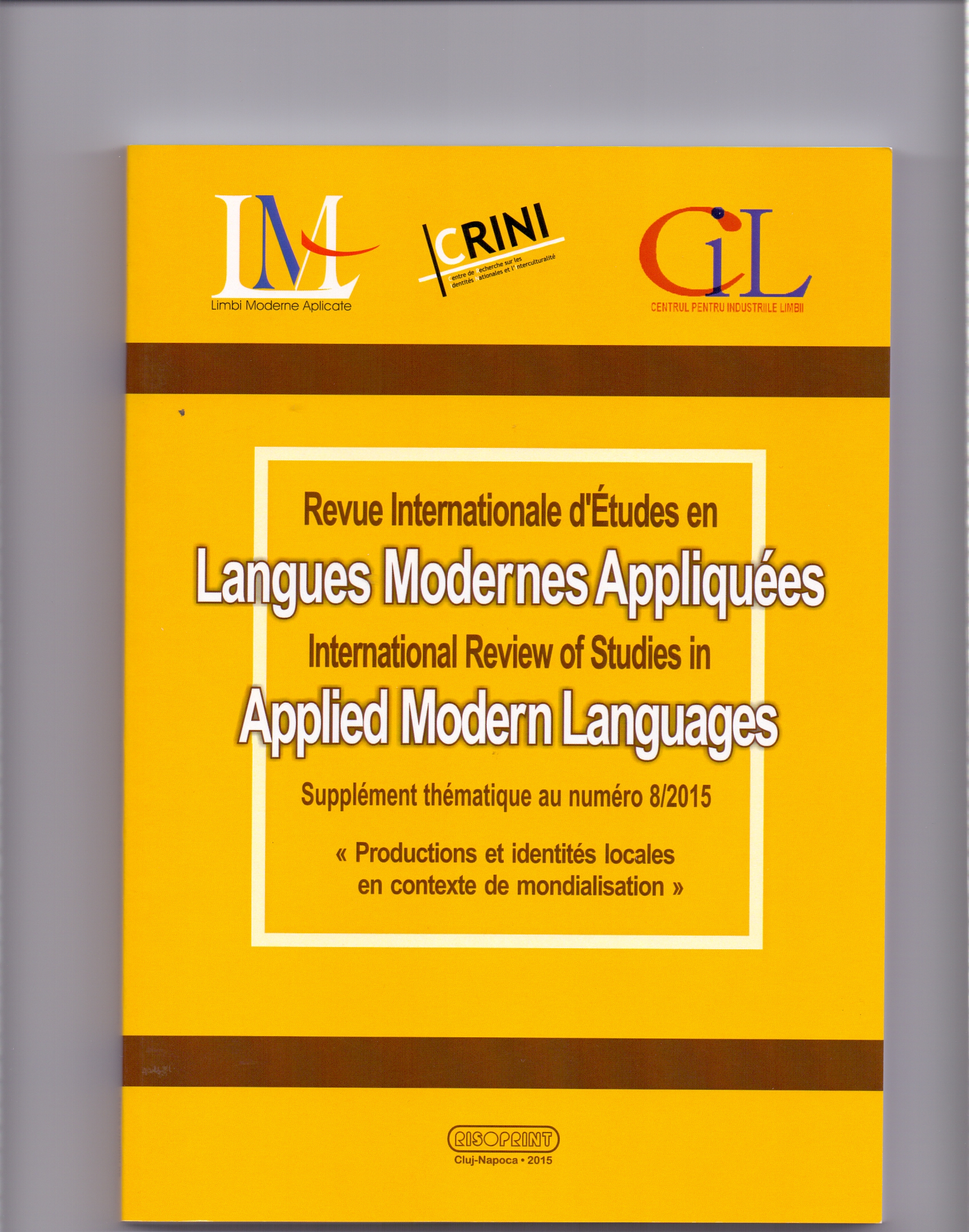Culture d’entreprise et communication commerciale à l’heure de la mondialisation
Corporate Culture and Commercial Communication in a Globalized World
Author(s): Mihaela Toader, Manuela Mihăescu, Alina PeleaSubject(s): Foreign languages learning, Business Economy / Management, Vocational Education, Translation Studies
Published by: Risoprint
Keywords: professionalization of education; project-based learning; employability; corporate communication; culture; languages; economy;
Summary/Abstract: In a complex, changing environment and highly challenged by globalization, the business world is still in the limelight of public debate and an important subject for university education. Of all the body of knowledge regarding business and trade, corporate culture and commercial communication are at the heart of the Applied Modern Languages curriculum, which trains students for professions related to international trade, international relations, cultural and linguistic mediation. Unfortunately, our graduates’ knowledge of the business world is either theoretical and, in this case, not pragmatic enough and not sufficiently adapted to market realities, or lacking certain basic skills or (inter)cultural communication skills and this is an issue that needs to be addressed. The new information and communications technologies enable significant advances at all the levels of communication, both in the real business activity and in the process of business communication learning. In highly specialized AML departments, the use of new technologies is common place and represents a guarantee of the student’s future success. The generation of ‘digital natives’ has a different view on corporate communication. Young people do not necessarily say they are indifferent to corporate life, corporate culture and communication, but they are nevertheless looking for a new corporate model, one that is more ‘fun’ and ‘innovative’. So what does the university have to do to train students for the international economic and commercial communication of tomorrow? What are the new approaches to oral and written professional communication and what is the role pf new technologies? Can the project-based learning offer a solution for the teaching of applied modern languages?
Journal: Revue Internationale d'Études en Langues Modernes Appliquées
- Issue Year: 08/2015
- Issue No: Suppl.2
- Page Range: 187-211
- Page Count: 25
- Language: French

